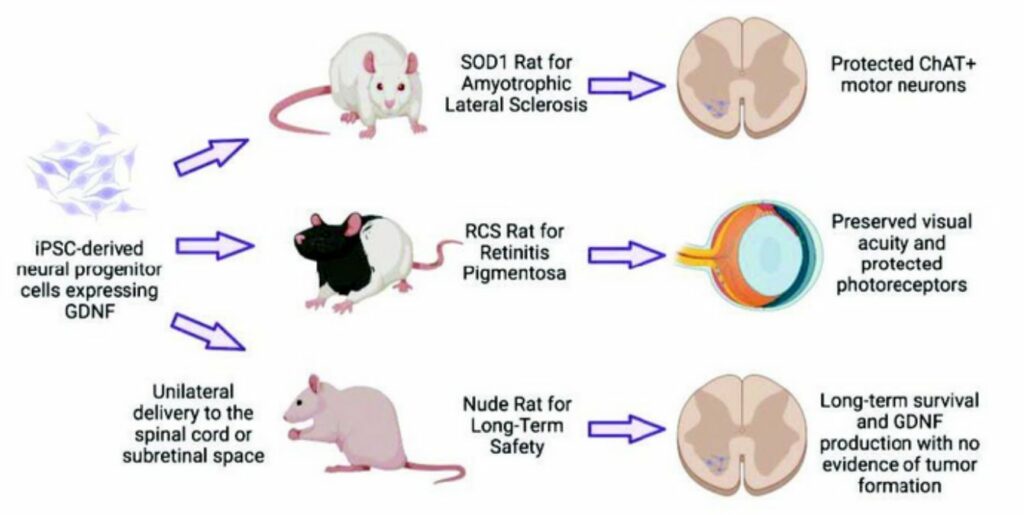As shown by a new study, this new Neurodegenerative disease treatment can keep your brain healthy by regenerating neuroprotective protein caused by neurodegenerative diseases such as Parkinson’s disease, amyotrophic lateral sclerosis (ALS) and retinitis pigmentosa.
A recent study published in Stem Cell Reports suggests that a promising solution for treating neurodegenerative and retinal diseases may lie in a renewable, engineered cell product.
These types of diseases, which include Parkinson’s disease, amyotrophic lateral sclerosis (ALS) and retinitis pigmentosa, are characterized by the progressive loss of neurons.
Although researchers are working on strategies for replacing lost neurons with stem cells, protecting existing neurons from degeneration could offer an alternative treatment option.
In a recent breakthrough, a team of researchers from Cedars-Sinai Medical Center in the United States made significant progress towards developing a potentially patient-specific treatment for neurodegenerative diseases.
The team genetically engineered neural progenitor cells (NPCs) – a type of cell that produces neurons and supporting brain cells called astrocytes – to release a specific neuroprotective protein, following promising results from a proof-of-principle clinical trial.
Innovative neuroprotective treatment
Lead researcher Clive Svendsen and his colleagues took this research a step further by generating engineered NPCs from reprogrammed adult human blood cells, thus creating a source of potentially patient-specific engineered cells.
The engineered NPCs were then tested in two animal models of neurodegenerative disease, where they demonstrated their effectiveness in preventing the death of neurons.
In one experiment, the engineered NPCs were shown to protect against photoreceptor cell death in rats with retinal disease, while in another, they prevented neuron death in a rat model of ALS.

In the experiment, the untreated eyes of the rats experienced a rapid decline in vision, while the eyes treated with engineered NPCs were able to retain their visual capabilities.
Moreover, the transplanted cells were observed to survive in the rat spinal cord for up to nine months, releasing a neuroprotective protein and transforming into neuron-supporting astrocytes.
The researchers believe that this combination of factors may be responsible for the therapeutic effects observed in the experiment.
This exciting breakthrough provides compelling evidence for the potential of engineered sustainable, patient-specific NPCs to treat neurodegenerative diseases.
The researchers suggest that these findings support the need for further clinical trials to assess the safety and efficacy of this approach.
Image Credit: Getty